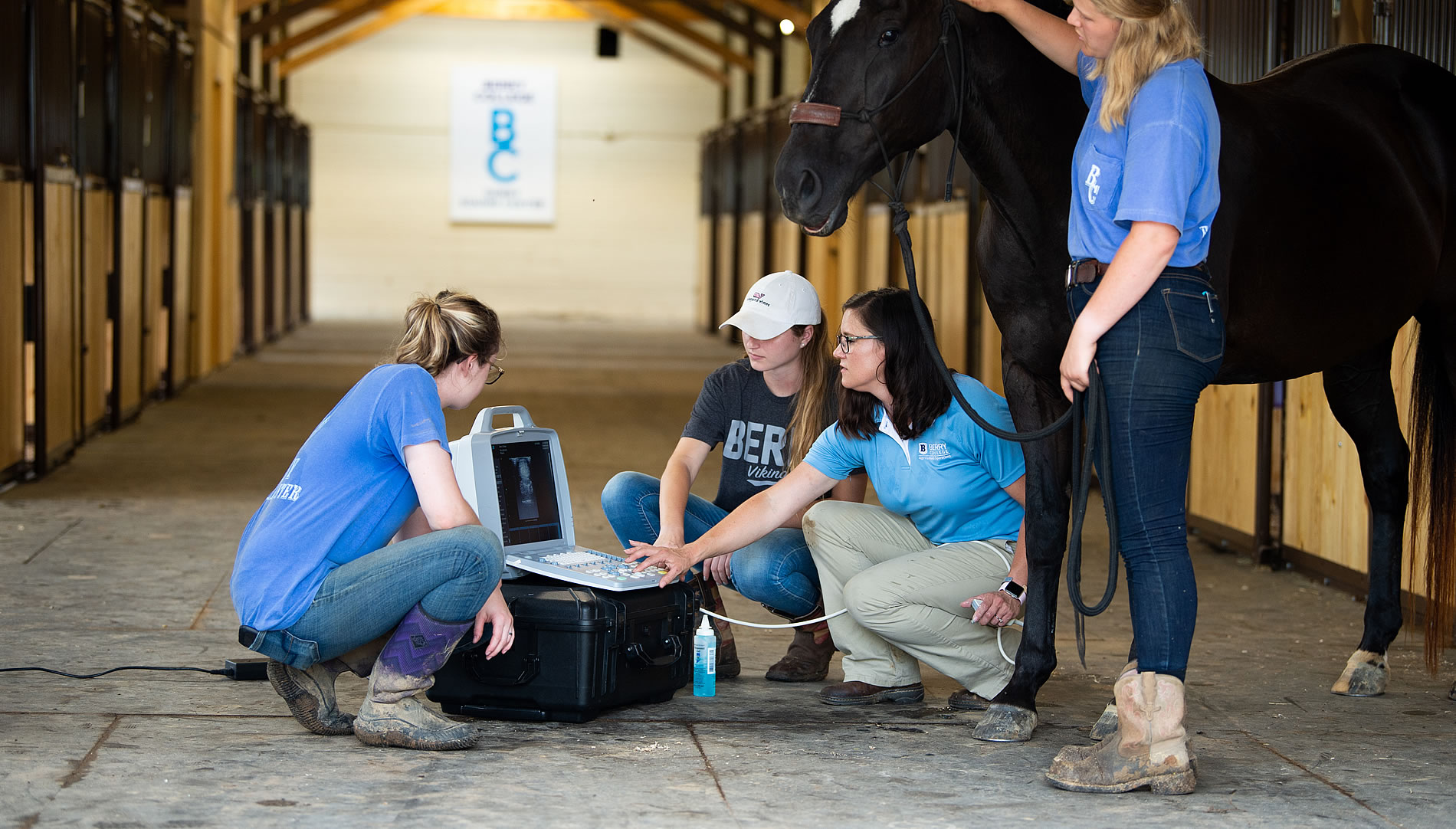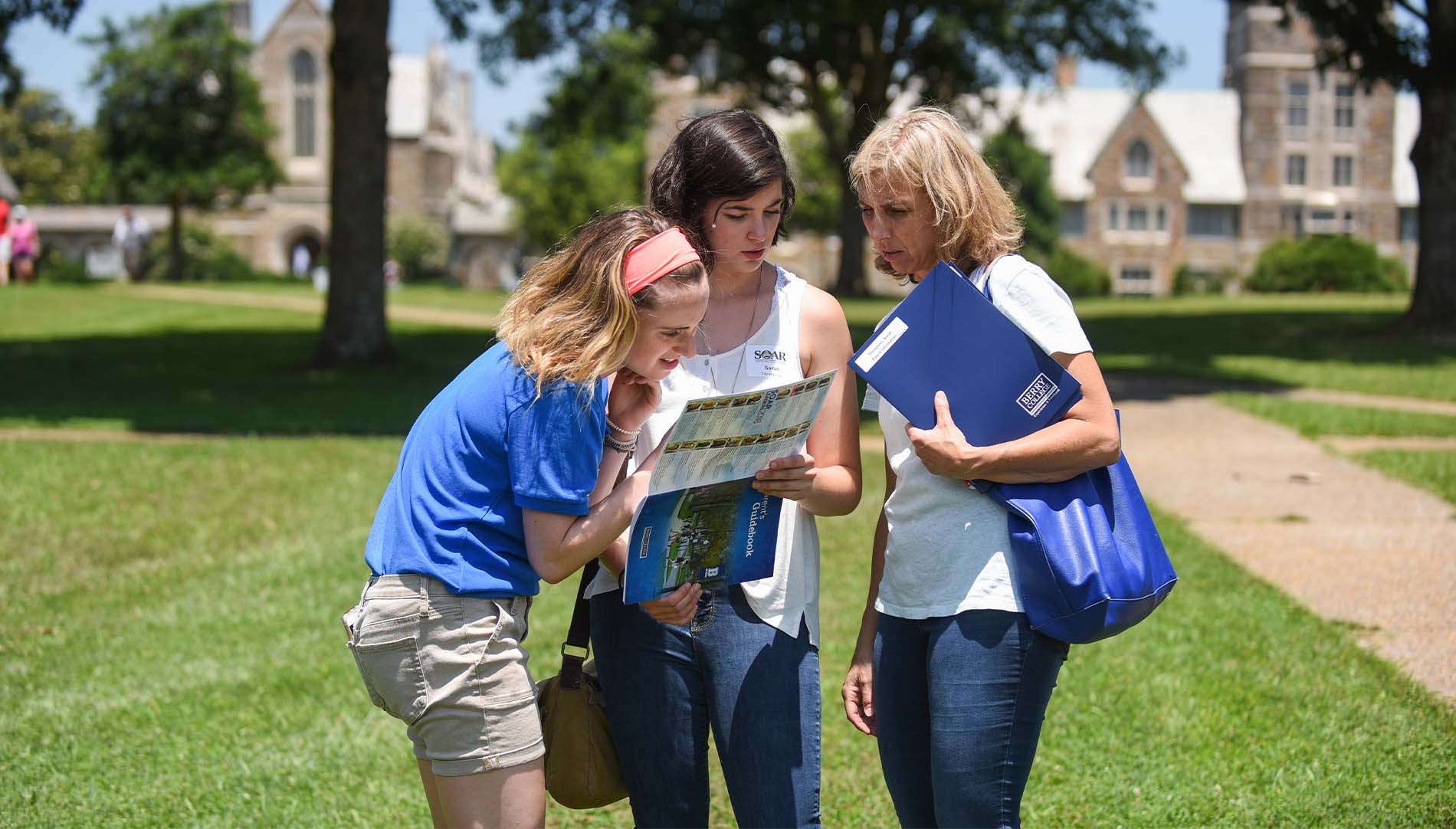In an academic landscape studded with specialized degree programs, “animal science” may strike you as a blanket, catch-all term. As you’ll discover here, it’s a profession with depth that feeds a variety of professions.
If you’re interested in a career working with or caring for animals, an animal science major is well worth considering. College prep is daunting, so you’ll want to ask yourself a few questions. How intense is the coursework? What are you committing to beyond the classroom? Why are hands-on experiences critical to your success? How does this course of study inform what you’ll do? At the end of the day, you’ll want to look for programs structured with career opportunities, career prep anchored in hands-on learning and animal science faculty who will respond to your passion for animals, your work ethic and your curiosity.
What is an Animal Science Major?
Animal science programs vary in size and location — from land-grant universities to liberal arts colleges that offer small classes and research opportunities alongside professors. If connected to an on-campus working farm, all the better. As far as career direction, animal science covers the spectrum, from livestock management and animal husbandry to veterinary medicine, zoology and conservation. Students learn how animals behave. How to attend to their needs. How to work with them, breed them, and heal them. It’s a degree that encapsulates the complexity and variety of creatures: household pets, farm animals, exotic animals, wildlife and more. As you explore, pay attention. You might discover a career path you didn’t know existed.
Animal Science: What Does It Take?
When pursuing a degree in animal science, the coursework builds from foundational classes in animal nutrition, principles of animal science and an understanding of various animals’ reproduction and development. You’ll need a solid footing in math and science to excel in this career path. From there, depending on your interests, you’ll branch out. This could involve courses in animal management, medicine, policy or research-related work. Here’s a sampling of elective courses.
Behavior of Domestic Animals: In this course, you learn how human care, genetic selection and the physical and social environments provided by humans affect animal behavior and well-being.
Neural, Muscular and Renal Physiology: This advanced physiology course is ideal for preparing students for graduate education in either the medical or research field.
Advanced Reproductive Technologies: This course explores the reproductive technologies utilized in domestic animals, including topics such as endocrinology, embryo transfer and cryobiology.
Equine Evaluation: This course shows how skeletal and muscular system anatomy and physiology contribute to soundness and performance in horses.
A career working with animals should not start and end in a classroom. Opportunities with hands-on experiences will connect what you learn in class to effective, meaningful work. Look for programs that go beyond typical work-study jobs and promote internships. Vet-school applicants typically accumulate 350 to 500 hours of experience, which makes them competitive and improves career prospects down the road.
What Careers Can You Carry Out With an Animal Science Major?
According to the American Society of Animal Science, there are over 500 different jobs available for students who pursue a degree in an animal science program. These are all dependent upon your specified area of focus. Here’s a quick sampling:
- Veterinary technician: A vet tech works alongside a veterinarian to help them perform technical examinations such as lab tests or x-rays. This role may include drawing blood, gathering an animal’s medical history or checking an animal’s vitals.
- Animal trainer: As an animal trainer, you teach animals how to behave and carry out specific tasks. This is prevalent when it comes to working with service animals or in the entertainment industry.
- Livestock buyer: A livestock buyer selects, buys and sells livestock for individuals after they have negotiated the livestock’s prices with the supplier.
- Marine biologist: If you have a passion for aquatic life, then consider marine biology. As a marine biologist, you conduct research, collect and analyze samples, and develop theories that would be shared through academic publications or conferences.
- Wildlife biologist: As a wildlife biologist, you study ecosystems, observe wildlife behavior and create conservation plans that aim to save endangered and/or threatened species.
- Agricultural and food scientist: In this career, you conduct research and analysis of soil composition with the ultimate goal of enhancing plant growth as well as ensuring crop productivity and sustainability.
The Animal Science Major Opens Up a World of Promise. But Is It for You?
Whether you end up in a veterinary office, agriculture, production management, biotechnology, animal behavior or conservation, there’s a great deal you can do with this degree. Even if you’re not sure of a career path, a solid animal science program offers an unmatched mix of academics and career exposure. Does this sound like the college experience you’re expecting? Then take the next step and schedule a tour or take a virtual one. Look around, so you’ll find the fit that’s right for you.



